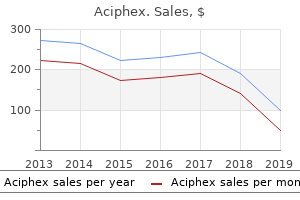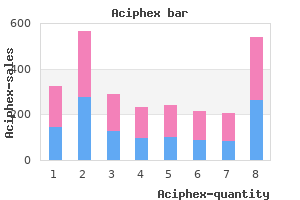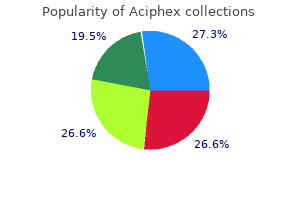Aciphex
"Order 10 mg aciphex free shipping, gastritis vs pud".
By: A. Pranck, M.A., Ph.D.
Clinical Director, University of California, San Diego School of Medicine
Methods: Echocardiography were performed in 79 children with essential hypertension and 47 age and gender matched normotensive children gastritis from stress cheap 10 mg aciphex otc. Materials and Methods: We reviewed the medical records of patients switched from Tacrolimus to Sirolimus to identify the reasons for switching immunosuppression gastritis diet ppt buy cheap aciphex 20mg online, any significant change in renal function, and whether there were any increased incidences of acute rejection whilst on Sirolimus. Results: Of the 143 patients transplanted over the last 10 years, 14 children (8 girls) with a mean age of transplant of 6. This rare differential is further complicated by variable clinical presentations challenging diagnosis. This case series looked into the factors that cause renal abscesses and how the choice of management affects overall outcome. Material & methods: A retrospective review of 8 patients from the last 13 years (2005-18) with a diagnosis of renal abscess in terms of their potential unifying risk factors, clinical presentation, ultrasound findings, biochemical parameters, microbiological results, management options (surgical drainage vs. The average time to radiological resolution of abscess for those managed surgically was 4. Conclusions: Renal abscesses have a slight female predominance which is in keeping with literature. The time to radiological resolution of abscesses is shorter for those managed medically than those managed surgically. This suggests that conservative management should be considered over invasive surgical procedures if they can be avoided. Different steroid-sparing agents have been used to reduce short and long-term toxicity, but the best strategy is still unknown. Materials & Methods: We performed a multi-center study to assess prevalence of transplant nephrectomy in pediatric renal transplant 2130 recipients with graft failure from January 1st, 2006- December 31st, 2016, to assess the influence of transplant and recipient characteristics on the decision to perform transplant nephrectomy and the influence of transplant nephrectomy on future transplantation outcomes. Results: Fourteen centers contributed data on 186 pediatric renal recipients that had failed transplants within the study period. The 76 patients that underwent transplant nephrectomy were not significantly different from the 110 patients without nephrectomy in gender, race, age at transplant, etiology of end stage renal disease, donor type and degree of sensitization. Patients that underwent nephrectomy were significantly more likely to have graft tenderness following the graft failure (39% vs 2. Outcomes in recipients with failed allografts that underwent nephrectomies and not were compared. There was a significantly higher incidence rejection in re-transplanted patients that had nephrectomy (18% vs 7%; p=0. Conclusions: Graft tenderness or biopsy proven rejection within a month of dialysis initiation/relisting for renal transplant was significantly associated with failed allograft nephrectomy. Re-transplant rates are not significantly different but there is significantly more rejection if patients have undergone failed allograft nephrectomy. Identification of modifiable risks and treatment may improve long-term cardiovascular morbidity and mortality. He received aggressive intravascular hydration Laboratory tests revealed acute renal failure uremia(u) 202 mg/dl creatinine (cr) 5, 7 mg/dl Initial renal transplant ultrasound and doppler was normal. Results: A 12 year-old girl was referred to our service with previous history of anemia. At admission, she had skin lesions compatible with cutaneous calcinosis confirmed by skin biopsy. Radiographs of long bones showed signs of calcification of the femoral and popliteal arteries, and elbows with calcifications in soft parts and signs of osteopenia. Echocardiogram showed systolic dysfunction and eccentric hypertrophy of the left ventricle. She remained on hemodialysis for 5 months, using sevelamer hydrochloride, evolved with controlled systemic hypertension after adequate antihypertensive therapy. Lower and upper limbs and pelvis radiographs remains with diffuse vascular calcification in the ulnar, popliteal, femoral and soft tissue arteries.

Adjunct Professor of Behavioral Biology in the Department of Psychiatry [2002; 1992] James Gordon Herman gastritis diet ginger purchase genuine aciphex line, M gastritis diet 666 purchase aciphex 10 mg line. Professor of Neurology [2006; 1999], Professor of Physical Medicine and Rehabilitation [2006; 2004] Charles W. Professor of Anesthesiology and Critical Care Medicine [2010; 2005] Ahmet Hoke, M. Professor of Pathology [1999; 1990], Professor of Oncology [1999; 1995] Steven Shih-ting Hsiao, Ph. Professor of Neuroscience [2008; 1992], Professor of Biomedical Engineering [2008; 1999] Shau-Ku Huang, Ph. Professor of Cell Biology [1986; 1980], Joint Appointment in Medicine [1987], Professor of Physiology [1993] Richard L. Professor of Neuroscience [1993; 1988], Joint Appointment in Biological Chemistry [1989], Director of the Department of Neuroscience [2006], Investigator of the Howard Hughes Medical Institute Thierry A. Adjunct Professor of Behavioral Biology in the Department of Psychiatry [1997] Nicholas Taylor Iliff, M. William Thomas Gerrard, Mario Anthony Duhon and Jennifer and John Chalsty Professor of Urology [1998; 1988], Professor of Oncology [1998; 1992] Ethylin Wang Jabs, M. Adjunct Professor of Pediatrics [2007; 1984], Adjunct Professor of Medicine [2007; 1990], Adjunct Professor of Plastic and Reconstructive Surgery [2007; 1984] David L. Baxley Professor of Pathology [1996], Director of the Department of Pathology [2001] Elizabeth M. Dana and Albert "Cubby" Broccoli Professor of Oncology [2002; 1992], Professor of Pathology [1999] George Issa Jallo, M. Professor of Neurological Surgery [2010; 2003], Professor of Oncology [2010; 2003], Professor of Pediatrics [2010; 2003] Kay Redfield Jamison, Ph. Dalio Family Professor of Mood Disorders in the Department of Psychiatry [1993; 1987] Henry D. Professor of Cell Biology [2004; 1988], Professor of Biological Chemistry [2010] Roger Anthony Johns, M. Professor of Anesthesiology and Critical Care Medicine [1999], Professor of Medicine [2006], Director of the Department of Anesthesiology and Critical Care Medicine [2003; 1999] Richard T. University Distinguished Service Professor of Neurology [1969], Professor of Neuroscience [1983], Director of the Department of Neurology [1997; 1988] Rolley E. Professor of Neurology [1988], Professor of Pediatrics [1988], Professor of Physical Medicine and Rehabilitation [2005] Bronwyn Jones, M. Adjunct Professor of Behavioral Biology in the Department of Psychiatry [2010; 1998] Richard J. Noxell Professor of Dermatology [2008], Director of the Department of Dermatology [2008] Peter W. Professor of Oncology [2002; 1985], Professor of Medicine [2002; 1975] Edward Kevin Kasper, M. Cowles Andrus Professor of Cardiology in the Department of Medicine [2007; 1992] David A. Abraham and Virginia Weiss Professor of Cardiology in the Department of Medicine [1998; 1986], Professor of Biomedical Engineering [1998; 1982] Walter Erwin Kaufmann, M. Professor of Pathology [2007; 1994], Professor of Neurology [2007; 1992], Professor of Pediatrics [2007; 1995], Professor of Psychiatry [2007; 1996], Professor of Radiology [2007; 2000] Haig H. Professor of Pediatrics in Genetic Medicine [2010], Professor of Molecular Biology and Genetics [2010] Gabor D. Professor of Emergency Medicine [1993; 1984], Director of the Department of Emergency Medicine [1993] Richard Ian Kelley, M. Professor of Molecular Biology and Genetics [1980; 1972] (on leave of absence), Director of the Department of Molecular Biology and Genetics [2002; 1982] David E. Everett and Marjorie Kovler Professor of Pancreas Cancer Research in the Department of Oncology [2002; 1992], Professor of Pathology [2002; 1990] Zaven S. Professor of Pathology [1997; 1980], Professor of Medicine [1997; 1980], Professor of Oncology [1997; 1995] Kwang Sik Kim, M. David Marine Professor of Medicine [2011; 1997], Professor of Biological Chemistry [2011; 1997], Vice Dean for Research [2011] Kenneth W.
Generic 10 mg aciphex otc. Believe It Or Not Use Frozen Lemons And Say Goodbye To Diabetes Tumors Overweight.

Where a matter involving student conduct cannot be resolved to the satisfaction of the Associate Dean for Student Affairs gastritis diet jump buy generic aciphex 20 mg on line, or where the gravity of the acts with which the student is charged appears to warrant further attention gastritis diet ������ buy genuine aciphex line, the Dean of the Medical Faculty will appoint an ad hoc committee of the Advisory Board of the Medical Faculty to hear the charge of misconduct. The Committee may include such other persons, for example, student peers, as may be deemed appropriate. The Dean, Vice Dean, Associate Dean and Registrar shall be non-voting ex-officio members of the ad hoc committee. The Dean, Vice Dean, or an Associate Dean shall preside at meetings of the ad hoc committee and may vote when the ad hoc committee is equally divided on a question. A student charged with misconduct will be given written notice of the charges and of the date and time of the Committee hearing. Prior to the hearing an accused student shall be given access to all documentary evidence to be presented against him. An accused student may request an opportunity to consult with the Dean, Vice Dean, or an Associate Dean prior to a hearing. A student may be accompanied to the hearing by a faculty member or student advisor. Representation of the accused student or the accusing party at the hearing by attorneys will not be permitted. In the course of the hearing, a student will be given the opportunity to present evidence and witnesses in his behalf, to question all witnesses, and to make statements to the Committee. Members of the ad hoc committee may ask questions of the student charged and of witnesses appearing before the Committee. A hearing before the ad hoc committee will be closed and persons other than Deans appearing as witnesses will be asked to absent themselves before and after their testimony. Parents of the accused student will be permitted to accompany a student throughout the hearing, and, if they should wish to do so, to make a statement. A hearing shall be recorded but the deliberations of the ad hoc committee shall not be recorded. All parties, witnesses, and representatives shall be excused at the conclusion of the hearing and the ad hoc committee shall deliberate privately. The Committee shall make findings as to the truth or falsity of the charges against the student and, where necessary, shall submit to the Dean a recommendation of a penalty. Unconditional Expulsion *Explicit conditions are to be unambiguous and as objective as the conditions allow. A student may appeal an adverse decision to the Dean of the School of Medicine, or, in the absence of the Dean, appeal may be made to the Vice Dean or an Associate Dean. The appeal should be made within 30 calendar days of the date of the committee decision. A student may attend classes pending the proceedings before the ad hoc committee unless the student is judged by the Dean, Vice Dean, or Associate Dean to be a danger to himself or others. A student must seek the permission of the Dean, Vice Dean, or Associate Dean in order to continue the educational program pending appeal from the recommendations of the ad hoc committee. Attendance Policy in the Preclinical Curriculum Among the goals of the Scientific Foundations of Medicine and the Genes to Society courses are to develop a sense of professionalism, to promote collegiality, to engage students in teaching one another, and to give students experience working in teams where different backgrounds and expertise are represented. Meeting these goals requires each student to be actively engaged, therefore attendance is mandatory at all group learning and teamwork activities. Attendance is also mandatory at all activities that involve patients and/or guests. Excused absences may be granted in cases of illness, religious observance, family emergency, presentations at scientific conferences, or required legal activity. Similarly, election day, presidential inauguration, and other public or civic events are not considered holidays for required clinical course students. Clarification on what qualifies as and excused and unexcused absence is as follows: a. Residency Interviews the following policy is to address the amount of time that fourth year students can miss from their required clinical courses for residency interviews. The goal is to ensure that students obtain sufficient experience in each of the basic disciplines to meet the objectives of the Hopkins curriculum.

Current smokers and patients with known lung disease should undergo pulmonary function testing for risk stratification before transplantation chronic gastritis gas order genuine aciphex line. Smokers who undergo transplantation are at risk for increased perioperative events and have poor long-term outcomes as compared with nonsmokers gastritis symptoms breathing order aciphex 20 mg fast delivery. All smokers should be offered smoking cessation aids and counseling as necessary to encourage smoking cessation. Screening for genetic risks of thrombosis should be considered in those individuals with a positive medical history, and a plan for perioperative anticoagulation should be constructed. Screening for genetic abnormalities may allow for an individualized perioperative plan including plasma exchange and/or calcineurin inhibitor avoidance, which may lessen recurrence risk. In addition, high-risk patients, such as those with diabetes, should be screened with a postvoid residual. Efforts should be made to preserve the native bladder, and selfintermittent catheterization is preferable to urinary diversion with ureteroiliostomy. At the time of transplantation, a final cross-match is completed to ensure tissue compatibility. Because not all positive cross-match results are due to antibodies that cause hyperacute rejection, further laboratory tests may be necessary before transplantation. Recipients with a current negative crossmatch but a historical positive cross-match may undergo transplantation, but they are at a higher risk for antibodymediated rejection. Rituximab and bortezomib (and, rarely, splenectomy) have been used to target B cells and plasma cells. In North America, the majority of organs are collected from deceased donors meeting the criteria for brain death. An uncontrolled donor dies before consent for organ donation and attempts are made to preserve the organs until consent can be obtained. Only a brief overview of this process will be provided; policies can be viewed in more detail online (http:/ / optn. Otherwise, donor kidneys are first offered locally, then regionally, and then nationally. At present, the allocation policy does not take into account factors associated with allograft and recipient survival, resulting in less efficient organ utilization. New organ allocation policies that attempt to maximize lifetime benefit are now being discussed. A donor profile index, time on dialysis, and an estimation of recipient survival after transplantation are all being considered for incorporation into a new allocation algorithm. These considerations could result in kidneys being matched to the recipient based on expected survival of the kidney and the recipient. With the new proposals, concern remains that certain groups may be disproportionately disadvantaged. As such, wait times have increased dramatically, to the point where it is difficult to accurately calculate median wait times in certain regions. Looking at it another way, only 30% of candidates will have received a kidney transplant within 3 years of being placed on the wait list. The lack of access to deceased donor organs, as well as the superior outcomes with live donors, has resulted in the increased usage of living kidney donors for transplantation. In the 15 years from 1990 to 2005, the number of living kidney donors used in the United States increased dramatically. Since 2005 this growth has slowed somewhat, but there were still more than 6500 living kidney donors used for transplantation in 2010 alone. Living kidney donation offers several potential advantages over deceased donor transplantation. First, the procedure is elective and scheduled, thus ensuring that both donor and recipient are in optimal medical condition. The planned nature of the operation also facilitates the use of preemptive transplantation. Second, the incidence of delayed graft function (need for dialysis in the first week posttransplantation) is much lower for recipients of living donor kidneys. Finally, patient and allograft survival rates are superior for living donor kidneys compared with deceased donors. In the most recently available data, patients who received a living donor kidney transplant in 2008 had a 1-year allograft survival of 96% compared with 92% for deceased donor recipients.

